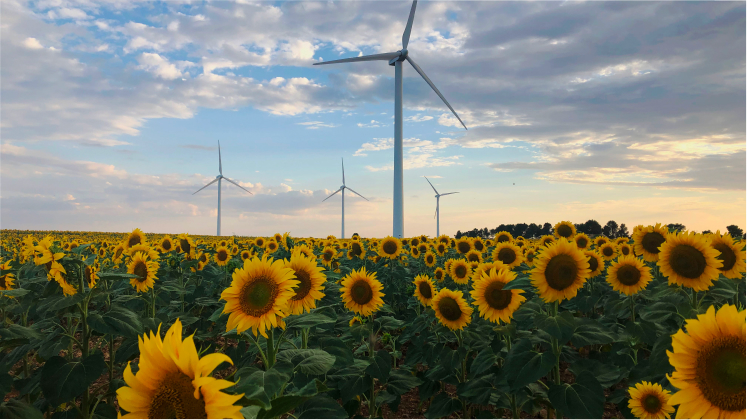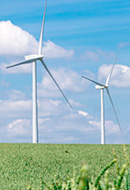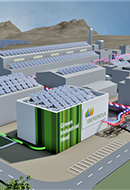Decarbonisation
Towards a low-carbon economic model
Decarbonisation means reducing to the minimum the greenhouse gas emissions – which mainly come from the use of fossil fuels – that are generated by any activity. Gradually decarbonising the economy is a global challenge, as these emissions heat the planet and worsen climate change, affecting biodiversity, environmental health and people’s safety.

What is decarbonisation?
Decarbonisation is the process of reducing carbon emissions into the atmosphere – mainly carbon dioxide (CO₂) – that come from the use of fossil fuels such as coal, oil and gas. Its goal is to achieve a global economy with low greenhouse gas emissions that achieves climate neutrality, making it a key pillar of the energy transition.
By burning fossil fuels to drive economic development, humans have exponentially increased CO₂ emissions over the past century. This gas is one of the main contributors to the greenhouse effect and therefore to global warming and climate change. Today, there is international consensus on the need for a structural shift to remove carbon from energy production and achieve a low-carbon economy, based on energy sources that emit only what the planet can absorb.
How can decarbonisation be achieved?
Achieving large-scale decarbonisation of economic activity requires a firm commitment to measures such as:
Hard-to-abate sectors
Hard-to-abate sectors refer to industries where reducing carbon emissions is particularly complex due to the nature of their processes and their strong dependence on fossil fuels. These industries include shipping, aviation, heavy transport and the production of steel and cement.
According to the International Renewable Energy Agency, these sectors are not currently on track to achieve net zero emissions by 2050, a key goal of the Paris Climate Agreement. At Iberdrola, we aim to be an ally in this challenge, supporting companies through innovation and our Energy Transition as a Service (ETaaS) solutions.

Carbon neutrality
Carbon neutrality, what is it and why is it vital for the future of the planet?

Industrial electrification
Elictryfing industry enables more efficient energy use and fosters innovation.

Carbon footprint
What Is a carbon footprint? Take action to reduce yours
A sustainable and efficient framework for decarbonisation
The regulatory environment is key to progressing, at the lowest possible cost, towards more efficient and emission-free energy vectors and end uses, enabling sustainable decarbonisation. In recent years, Europe has been the most determined driver of the global energy transition.
The European Green Deal, published at the end of 2019, set out the European Commission’s strategy to achieve carbon neutrality by 2050 and enhance competitiveness by decoupling economic growth from resource use. This climate ambition was reaffirmed in the Climate Law of June 2021, which raised the 2030 emissions-reduction target from 40% to 55%, through the gradual implementation of the “Fit for 55” package of measures.
What’s more, to promote economic recovery, the European Union approved the Next Generation EU funds – an extraordinary €750 billion instrument to support recovery following the COVID crisis. Some of these funds are allocated to implementing the measures needed to achieve these climate objectives, in line with the Recovery and Resilience Plans developed by each Member State.
Iberdrola and decarbonisation
At Iberdrola, we firmly believe that the transition to a carbon-neutral economy by 2050 is possible with the right investment, and that it offers a major opportunity to create wealth, generate employment and improve air quality. The company has set itself the target of becoming carbon neutral by 2030.
After more than 20 years leading the energy transition, we have renewed our commitment in the 2025-2028 Strategic Plan to the electrification of demand, supported by the development of electricity distribution and smart grids, and by promoting renewable energy generation and storage.











